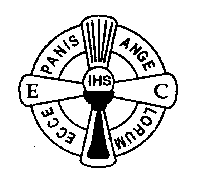Excerpts
From the Manual of the
Eucharistic Crusade of the Apostleship of Prayer
Published
in 1962 by the Central Office of the Eucharistic Crusade, Rome

Educating the Youth to Live the Mass
(slightly edited by Fr. Boulet)
A. EDUCATION FOR CORRECT PARTICIPATION IN THE MASS
2°. Suitable introduction to understanding the Mass.
The idea and impression of the Mass which they will keep throughout life depends, perhaps, on the aspect under which this mystery is first explained to them. The very first instruction on the Mass, given perhaps by their mother when they reach the age of reason, generally takes the aspect of a banquet prepared for us by our heavenly Father. But we should not stop at this banquet aspect of the Eucharist, but quickly pass on to explain its sacrificial character as soon as they are able to grasp it. The banquet idea is easier for the children to understand, but this is no reason for dwelling upon it principally and for putting the sacrificial character of the Mass in the second place. Such an approach falsely presumes that a child of eight ornine years is not capable of some understanding of the Mass as the Sacrifice of Christ and the Church. It is very important that children be taught the sacrificial aspect of the Mass as soon as possible. All the sanctification of our life, our work, our joys and sorrows is achieved not just through participation in the Eucharistic Banquet but also through the union with the Sacrifice, the oblation of Christ.
This instruction on the Mass can be given in stages. The first stage should involve only the essential elements, namely:
a) Christ died on the cross for men's sins so as to reconcile us with His heavenly Father.
b) What Christ did on the cross, He represented in a marvellous and unbloody way at the Last Supper on the night before He died and at the same time He gave Himself as food for our souls.
c) At the Last Supper Christ ordered His apostles and their successors to renew continually what He Himself did at the Supper. This is done in the Sacrifice of the Mass.
Therefore in the Sacrifice of the Mass, Christ continually offers and presents to His Father what He did on the cross, including in this oblation all the faithful and their good works. Obviously it is not necessary that the children completely grasp all of this from the start and still less that they know the definition of sacrifice. It is enough to have the beginnings of understanding which can be perfected little by little.
So, for example, if the children understand the Mass to be a great act of thanksgiving offered by the sons of God, together with Christ, their Elder Brother, to their heavenly Father - and at the same time a great gift of God to His sons (as the fruit of redemption), - and also the means by which we can make satisfaction for all the sins by which He is offended - if children understand this, they are well prepared to grasp the sacrificial character of the Mass more and more.
Home | Contact
| Mass Centres | Schools
| Pilgrimages | Retreats
|
Precious Blood Residence
District Superior's
Ltrs | Superor General's
Ltrs | Various
Newsletter | Eucharistic
Crusade | Rosary Clarion | For
the Clergy | Coast to Coast |
Saints | Links